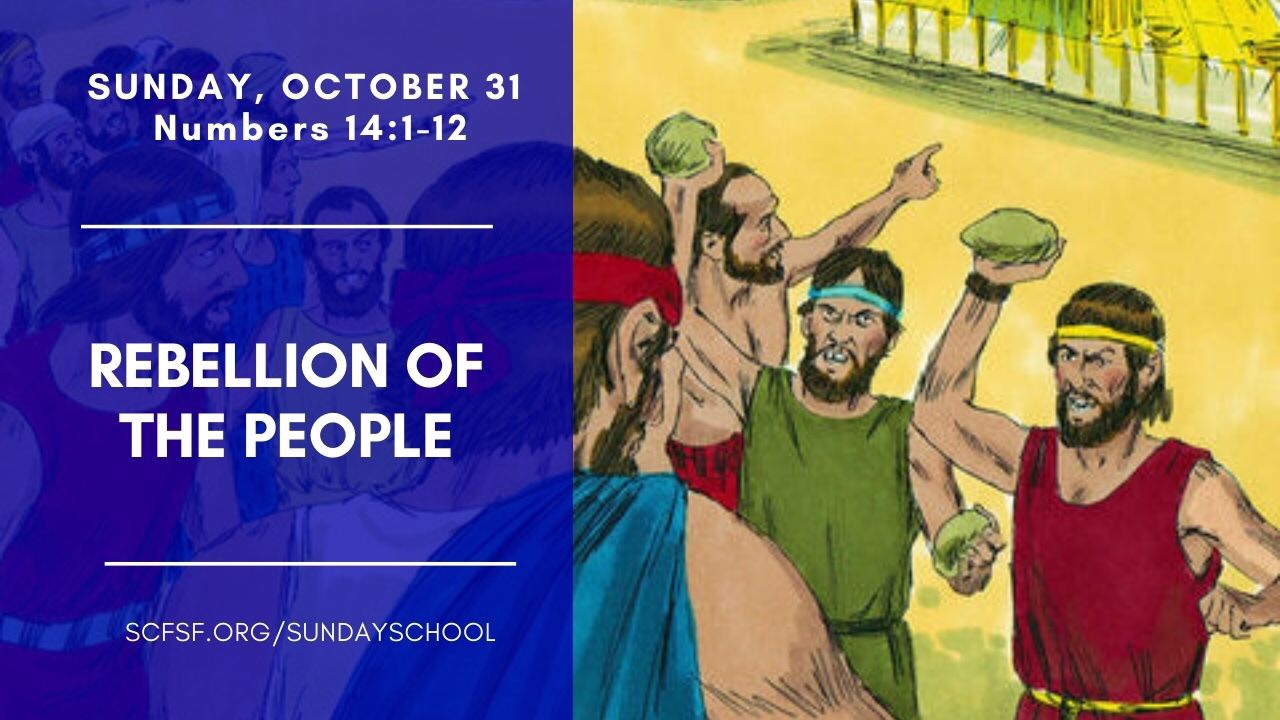
Scripture
By Janice Hall
Lesson Text: Numbers 14:1-12
Related Scriptures: Psalms 118: 1-9; Psalms 96:1-11; Numbers 21: 4-9; Hebrews 3:8-16
Numbers 14:1-12 gives us an account of the continual dilemma between God and Israel concerning their murmuring and unbelief. We see the fruitless endeavor of Moses and Aaron, Caleb and Joshua to quiet the people, and God gives rebellious Israel what they deserved: judgment.
Psalm 118:1-9 is centered on God, and the expressions of gratitude, admiration, joy, and praise. Verse 8 says, “It is better to trust in the LORD than to put confidence in man.” Psalm 96:1-11 is declaring the glory of God to the world. The verses address the people of God, then to all nations of the earth and finally to creation itself. These songs to the Lord were not only celebrations but also proclamations.
In Numbers 21:4-9, this incident occurs near the end of Moses’ life and the conclusion of Israel’s wandering in the wilderness. The Israelites were on the verge of the Promised Land, and were beginning to act with the same unbelief as previous generations. Just as Moses lifted up the snake in the desert, so shall the Son of Man be lifted up, so that whoever believes will in Him have eternal life. Hebrews 3: 8-16 reminds us as the Holy Spirit speaks, we must hear His voice and not allow our hearts to become hardened. God’s will was that the people of Israel, having been freed from bondage in Egypt, would find rest in Canaan, the land God promised them.
Synopsis
By Tarae King
14:1 After being given conflicting information regarding a Promised Land all the people of Israel cried all night. 14:2 The children of Israel complained against Moses and Aaron. They thought it would be better to have died in Egypt or the wilderness. 14:3 They wondered why the Lord brought them to Canaan to let them die by the sword. They were concerned that their wives and children would be victims and they considered whether it be better to go back to Egypt.
14:4 They discussed choosing a leader and going back to Egypt. 14:5 Moses and Aaron fall on their face in front of the Israelites that were there. 14:6 Joshua and Caleb who were part of the group that went to explore the land tore their clothes. 14:7 They tell the children of Israel that the land they pass through is exceedingly good. 14:8 If God is pleased with Israel, He will lead them to a land flowing with milk and honey, and give it to them.
14:9 They were not to rebel against the Lord, or be afraid of the people of the land they would conquer. 14:10 The Israelites threatened to stone them, but the glory of the Lord appeared. 14:11 God speaks directly to Moses and ask how long the people would despise Him and refuse to believe even after all they had seen Him do. 14:12 God said, He would strike the people down with a plague and destroy them. After that He would start a new nation with Moses, one that would be greater than Israel.
Practical Application
By Lecha Price
In today’s lesson, the children of Israel are on the brink of entering the Promised Land, all while on the cusp of forfeiting the long-awaited moment because of their rebellion against God. The negative report offered by the ten spies who returned from scouting out the land caused the children of Israel to have a sense of hopelessness of ever securing the land God had promised them. Instead of believing God and holding onto their faith, they chose to listen to the voices of doubt and unbelief. As shown by God’s response to their misguided reaction, giving credence to the voices of doubt and unbelief will surely have a disastrous effect on a favorable outcome.
In keeping with His credible nature, God never leaves Himself without a witness. There were two spies, Joshua and Caleb, who returned from the scouting excursion with a good report of faith. These brave scouts courageously declared, “Surely, we can go up and take the land at once for the Lord is with us!” Regrettably, the strong voice of faith did not encourage the children of Israel to trust God, but rather they chose to despise God’s undeniable promise all the more in the face of it. It was clear that Joshua’s and Caleb’s faith was in God’s ability and not in their own strength.
They knew God would do as He had promised in accordance with His faithfulness that He already shown and proven in the past. These two unwavering followers chose to remember and focus on the goodness and faithfulness of God instead of what they saw in the natural.
Today’s practical application encourages us to prepare our hearts to pass every test of doubt and unbelief with faith. To do so, we likewise must choose to remember the goodness and faithfulness of God, fixing our eyes on Him, and allowing His spoken/revealed (Rhema) and written (Logos) word to be our anchor of hope and faith in what He has promised.




